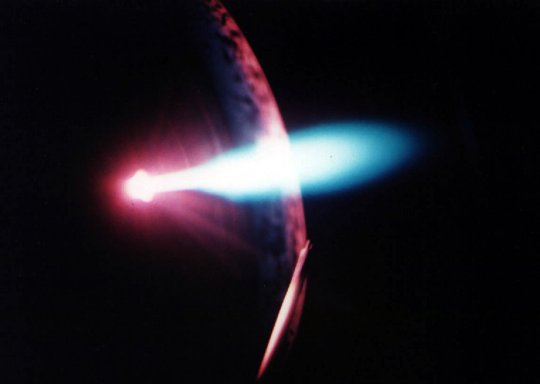Start-up promises affordable, local hydrogen creation


In the future, the sewage and other waste fluids waste from your city could be used to produce hydrogen. A start-up is currently operating refineries using technology that requires far less electricity than more established methods of production.
Florida's MagneGas Corporation has been awarded patents for a method to force liquid through plasma at a high rate of speed and maintain a stable arc. Plasma is gas that is heated to extremely high temperatures and ionized to become electrically conductive. Maintaining a stable arc makes gas production more economical at an average cost of US$24 hour to operate, said MagneGas CFO Luisa Ingargiola.
A low operating cost is significant, because producing hydrogen has typically been inefficient and expensive. MagneGas uses local facilities, so transportation and storage is less of an issue. However, it is not presently focusing on making hydrogen. It is making commercial use of a gas blend that is the result of its process.
The process yields a gas that is the company's namesake, MagneGas. The gas is approximately 65% hydrogen, which can be separated out and sold, Ingargiola said. The company is presently positioning MagneGas as a natural gas alternative and a replacement for acetylene in welding. Acetylene is carcinogenic and produces carbon emissions while it is burnt. It also touts lower greenhouse has emissions than natural gas.
MagneGas already has customers for both uses; the fuel first came to market in 2011 and is produced at small onsite refineries. MagneGas's business plan is to own and operate micro refineries and sell the fuel. It is also generating revenues through equipment sales, and forecasts between 6-8 refineries being in operation with its customers by this time next year. General Motors, the world's second largest automaker, is among them.
GM is its poster child, and is using MagneGas for metal working at a Michigan plant. A converted natural gas fueled Chevy Cavalier also runs on MagneGas. With customers like GM, MagneGas is bullish on its next fiscal year. The metal working industry will be its major target.
MagneGas is a publically listed company, and was founded in 2007 after nearly 25 years of R&D. Equipment finance company Northland Capital has funded its operations. Ingargiola anticipates that MagneGas will break even some time in 2013. "We have virtually no debt and lots of cash," she said.
Its future markets could include the sale of hydrogen, treating municipal waste, and agricultural applications such as sterilizing manure and producing fertilizers as a byproduct of gas creation. It is also exploring converting carbon dioxide into other chemical compounds.
(Image credit: http://www.plasma.inpe.br)
Related on SmartPlanet:
- An artificial leaf for solar power storage
- Can viruses help make hydrogen fuel?
- A heat battery for solar storage
- New proton path to better fuel cell
- Personal energy systems: Are we there yet?
- Hydrogen fuel made from a tiny forest of nanotrees
- DOE scientists develop inexpensive hydrogen fuel generation
This post was originally published on Smartplanet.com